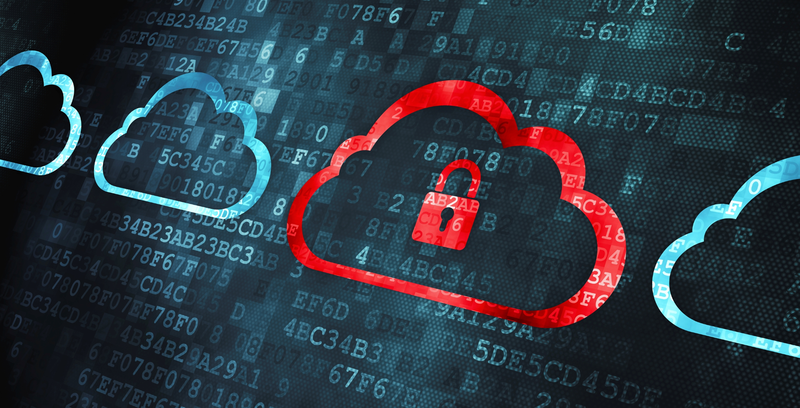In the digital area, we can all see how beneficial the cloud has become, storing a huge amount of data and information. You can store different forms of media, documents, and messages on a limited budget!
It’s what makes backing up data much easier rather than using hard drives and other physical forms of data storage. Besides that, you can access all data easily on any device using the Internet. From Google Docs to Gmail, DropBox to iCloud, there are so many options to choose from!
However, the one concern for cloud is data security, since many wonder about how safe their data is online. Unfortunately, there have been many cases of hacking and data breaches in the past, though we have to be honest: Security systems aren’t always to blame, but our own poor security practices, from short passwords to lack of encryption.
Sure, you can hire a company like the Prosnet QLD Managed IT Support, but securing your cloud starts with YOU. With that said, read on as I show you tips on securing your data well in the cloud.
How to Secure Your Data In the Cloud
Protecting your data is crucial, especially when it’s in online cloud, millions of other people use. It takes extra yet simple efforts to prevent any security concerns and issues from arising. Here are the following tips and efforts to keep cloud data even more secure:
- Back-Up Your Data
This is the number one rule when managing data: Always have a backup! Create electronic and physical copies, use different cloud storage devices, and have an external physical storage device or drive like thumb drives or hard disks. This has you get access in case of no Internet connection.
- Avoid Storing Sensitive Data
Unfortunately, I don’t believe in real privacy online, which is why I’d rather skip storing all the most private and secret files in a cloud. It may seem paranoid of me, but I’d rather avoid issues such as identity theft or hacking and blackmailing. As much as possible, only keep files you need to access frequently and avoid uploading documents that have passwords to online accounts or other sensitive information.
- Use Cloud Services Which Encrypt Data
One of the most effective and easiest ways to improve your privacy is by choosing reputable cloud services that offer local encryption for all your data. This adds another security layer since it needs to decrypt before you have access to said data. It takes a little while to encrypt but will be worth the protection.
- Encrypt Data Before Placing It On Your Cloud
If you won’t use cloud services to encrypt data, you can use third-party tools to do so. Simple download cloud-protection apps that have you put passwords and generate secret key sequences to files before you’re able to upload them into your cloud. It’s also best to have a round of encryption for all your files for extra security and reassurance.
- Always Read the Fine Print!
Some cloud services enable you to share files and photos with others, which is an appealing feature! However, these services might come with a catch mentioned in fine prints we don’t read.
Yes, it may be tedious to read through such privacy policies and the like, but it’s better to do so than avoid having your documents and files shared because you missed something! You can learn more about cloud services and if they’re a good choice through legitimate online reviews.
- Use Strong Passwords and Use Two-Step Verifications
Having a good password is the first line of defense against any hackers out there. You’ll need to make sure that you have a strong and unique password which can stand any cracking or hacking attempts. Besides that, you need to also change it frequently and avoid repeating it across different online accounts you own.
You can also consider getting two-step verification for logging in if the cloud services offer it. This is a more secure option, which sends verification codes to your mobile phone before logging in for added security.
- Mind Your Online Behavior
Your cloud data security also depends on your online interactions, especially when using public WiFi connections or computer systems.
As much as possible, avoid accessing your cloud on a public computer or connection. If you do have to use it, then do NOT save your password and log out once you’re done. This is because public connections are usually unencrypted, which can be sniffed by hackers on a similar network!
- Use Anti-Virus and Anti-Spy Software
While cloud service providers are extremely secure and constantly updates, your computer system may be the weak link! Without protection for your computer system, it makes it vulnerable to bugs and viruses, which hackers can use to access accounts.
With that said, it’s time to start protecting your computer system using the right software. It will constantly remove and prevent any bugs from coming in, which prevents less hacks and issues with your data.
Wrapping It Up
There are many benefits to cloud computing, but data security tends to be a major concern. With the proper methods and practices, you can prevent any hacking and data breeches to keep your data safe. Just make sure that you continue updating yourself with the right practices and safeguard your data privacy from hackers and the like!
Hopefully, this article on how to secure your data in the cloud gave you an idea on what security measures to take. So begin looking into these tips and start implementing these practices immediately!
Do you have any questions or want to share your tips and experiences in using the cloud, comment below. All your thoughts are much appreciated!
